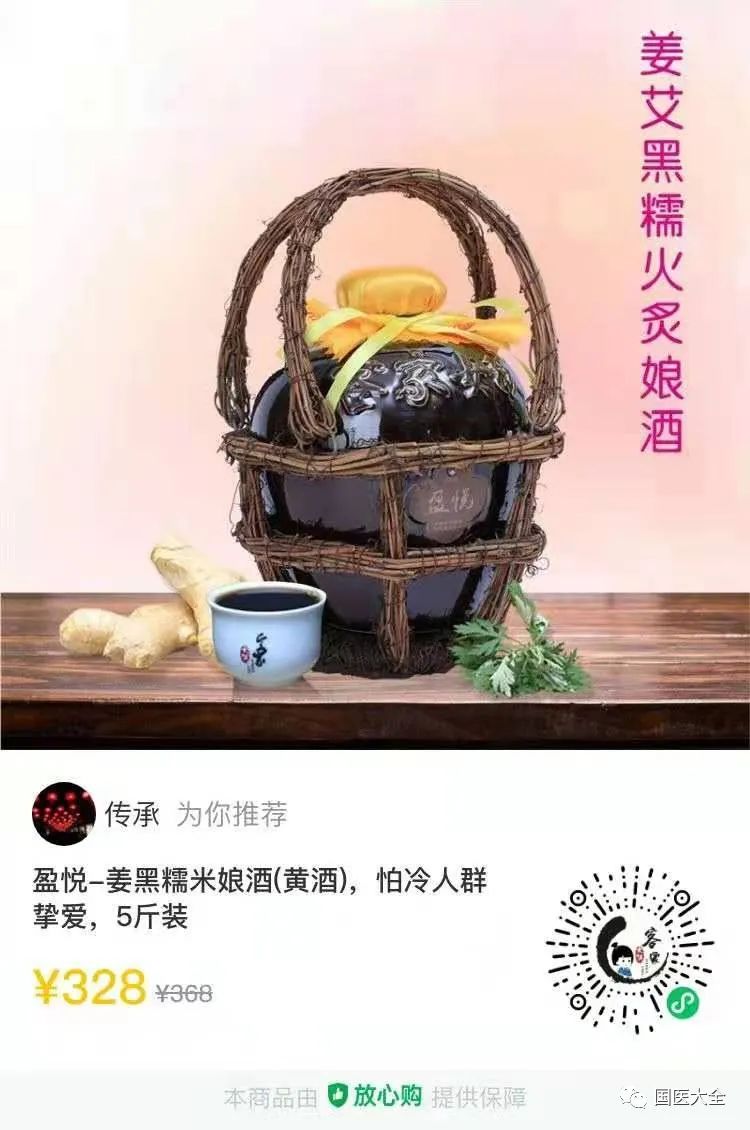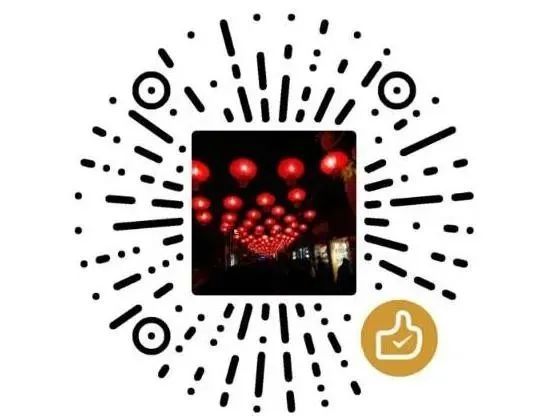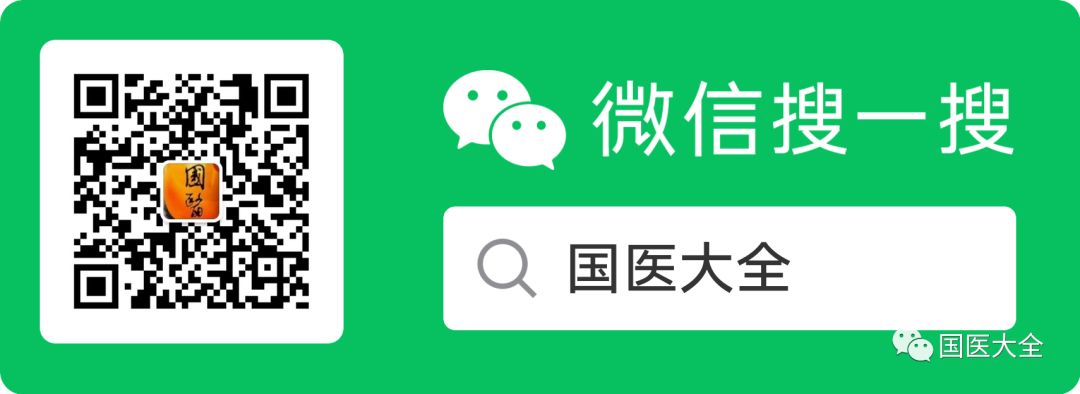Yin deficiency leads to heat, Yang deficiency leads to cold intolerance, Blood deficiency causes dryness, and Qi deficiency results in weakness.
1. Yin Deficiency — Avoid spicy and dry foods, prefer Chrysanthemum (Juhua) and Pear (Li)Symptoms: hot palms and soles, sweating, irritability, and sores on the tongue.2. Yang Deficiency — Avoid raw and cold foods (like shrimp and crab), prefer lamb (Yangrou) and Ejiao (Donkey-hide Gelatin).Symptoms: cold intolerance, diarrhea, fatigue, and lack of energy.3. Qi Deficiency — Prefer Chinese Yam (Shanyao), Ejiao, Poria (Fuling), and Job’s Tears (Yi Yi Ren).Symptoms: weakness in limbs, easy fatigue, and poor appetite.4. Blood Deficiency — Avoid spicy and dry foods, prefer Red Beans (Hongdou), Ejiao, Red-skinned Peanuts (Hongyi Sheng), and Red Dates (Hongzao).Symptoms: pale complexion, palpitations, and irregular menstruation.Qi Deficiency Symptomsgenerally refer to overall weakness, easy fatigue, shortness of breath, low voice, and even reluctance to speak, with excessive sweating. Clinically, this condition can manifest in different organs depending on the disease:For Lung Qi Deficiency: Symptoms include low voice cough, weak phlegm, and susceptibility to colds.For Heart Qi Deficiency: Symptoms include pale complexion, forgetfulness, and palpitations.For Kidney Qi Deficiency: Symptoms include nocturnal emissions and frequent urination.For Spleen Qi Deficiency: Symptoms include bloating after meals, loose stools, poor digestion, and reduced appetite.Yin Deficiency Symptomsoften manifest as thin body shape, dry mouth, dry nose, dry throat, afternoon fever, or heat in the palms and soles. Specifically, it can be divided into:Lung Yin Deficiency: dry cough, little sticky phlegm, or blood-streaked phlegm, hoarseness, sweating during sleep, and stopping sweating upon waking (commonly known as night sweats).Spleen Yin Deficiency: lack of appetite, difficulty digesting food, nausea, dry mouth, thirst, dry stools, and weight loss.Kidney Yin Deficiency: symptoms include weakness in the lower back and legs, heel pain, heat in palms and soles, irritability, insomnia with night sweats, nocturnal emissions, hair loss, and loose teeth. Liver Yin Deficiency: dizziness, headaches, dry eyes, photophobia, blurred vision, insomnia with vivid dreams, and poor nail luster.It is worth mentioning that Liver and Kidney Yin Deficiency often occur simultaneously; Liver Yin Deficiency can lead to Kidney Yin Deficiency, and Kidney Yin Deficiency can often cause both Liver and Kidney Deficiency.

Yang Deficiency Symptomsoften include cold intolerance, especially in the hands and feet, lack of taste, no thirst, pale and copious urine, especially at night, overall weakness, and easy fatigue. Yang deficiency symptoms are milder in summer and worsen in winter, often developing from Qi deficiency.Spleen Yang Deficiency Symptoms: reduced appetite, preference for warm foods, comfort upon pressing the stomach, bland taste, preference for hot drinks, loose stools or undigested food, accompanied by edema, pale complexion, and in women, clear and copious vaginal discharge, even stomach pain that improves with warmth and worsens with cold.Kidney Yang Deficiency Symptoms: soreness and coldness in the lower back and knees, cold intolerance in limbs, clear and frequent urination, edema (more common below the waist), impotence, nocturnal emissions, and in women, infertility or pain around the navel before dawn, with bowel sounds and diarrhea that improve after defecation.Heart Yang Deficiency Symptoms: palpitations, chest tightness, shortness of breath, feelings of emptiness in the heart, easy to be startled, anxiety after being startled, and even pain in the heart area.Blood Deficiency Symptomsinclude yellowish or pale complexion, pale lips, dizziness, insomnia, reduced menstrual flow in women, prolonged cycles, or even amenorrhea, dull skin, dizziness often occurring or worsening after fatigue, pale nails, mild headaches that worsen with fatigue, often accompanied by Qi deficiency symptoms such as reluctance to speak, fatigue, and excessive sweating.Heart Blood Deficiency: palpitations, irritability, insomnia, vivid dreams, forgetfulness, pale complexion, and pale lips, often occurring in those with weak constitutions.Liver Blood Deficiency: symptoms include blurred vision, dry eyes, pale and brittle nails, even deformities, night blindness, blurred vision, tinnitus, numbness in limbs, weight loss, and in women, reduced menstrual flow, pale color, or even amenorrhea, insomnia with vivid dreams, and easy awakening.Medicinal Use for the Five Organs1. LiverTo Nourish Liver Yin: Shan Yao (Shan Yao), Goji Berries (Gou Qi Zi), Rehmannia (Di Huang), Schisandra (Wu Wei Zi), He Shou Wu (He Shou Wu), Ejiao, and Cuscuta (Shan Yao). To Astringe Liver Qi: Jujube Seed (Da Ren), Black Plum (Wu Mei), Papaya (Mu Guo), and Dragon Bone (Long Gu).To Soothe Liver Qi: Bupleurum (Chai Hu), Cyperus (Xiang Fu), and Amomum (Mu Xiang).To Break Liver Qi: Sparganium (San Leng), Bitter Orange (Zhi Shi), and Green Peel (Qing Pi).To Disperse Liver Wind: Uncaria (Gou Teng), Mulberry Leaves (Sang Ye), Chrysanthemum (Ju Hua), and Peppermint (Bo He).To Drain Liver Damp-Heat: Gentian (Long Dan Cao), Forsythia (Lian Qiao), and Poria (Tu Fu Ling).To Disperse Liver Heat: Cassia Seed (Cao Jue Ming), Selfheal (Xia Ku Cao), Wild Chrysanthemum (Ye Ju Hua), and Qinghao (Qing Hao).To Cool Liver Blood: Raw Rehmannia (Sheng Di), Red Peony (Chi Shao), Purple Root (Zi Cao), Platycladus (Ce Bai Ye), White Grass Root (Bai Mao Gen), Huaihua, and Moutan (Dan Pi), Bear Gallbladder (Xiong Dan).To Break Liver Blood: Peach Kernel (Tao Ren), Curcuma (E Zhu), Five-Flavor Herb (Wu Ling Zhi), Dragon’s Blood (Xue Jie), Turtle Shell (Bie Jia), and Motherwort (Yi Mu Cao).2. HeartTo Nourish Heart Qi: Longan (Long Yan Rou), Poria (Fu Shen), and Schisandra (Wu Wei Zi).To Nourish Heart Blood: Raw Rehmannia (Sheng Di), Angelica (Dang Gui), Salvia (Dan Shen), Semen Ziziphi Spinosae (Bai Zi Ren), Schisandra (Wu Wei Zi), and Jujube Seed (Da Ren).To Drain Heart Heat: Coptis (Huang Lian), Akebia (Mu Tong), Lampwick (Deng Xin), Forsythia (Lian Qiao), and Bamboo Leaves (Zhu Ye).To Cool Heart Blood: Rhinoceros Horn (Xi Jiao), Raw Rehmannia (Sheng Di), Purple Root (Zi Cao), and Belamcanda (She Gan).To Open Heart Qi: Acorus (Chang Pu), Polygala (Yuan Zhi), Benzoin (An Xiang), and Sweet Flag (Shun Shou Xiang).To Expel Heart Cold: Cinnamon (Gui Xin) and Corydalis (Yuan Hu). To Calm the Heart: Dragon’s Tooth (Long Chi) and Red Poria (Zhu Fu Shen).3. SpleenTo Nourish Spleen: Atractylodes (Bai Zhu), Jujube (Da Zao), Chinese Yam (Shan Yao), Codonopsis (Dang Shen), and Honey-fried Licorice (Zhi Gan Cao).To Strengthen Spleen: White Cardamom (Bai Dou Kou), Nutmeg (Rou Dou Kou), and Amomum (Sha Ren).To Awaken Spleen: Amomum (Mu Xiang), Patchouli (Huo Xiang), Acorus (Chang Pu), Cardamom (Hong Dou Kou), and Amomum (Sha Ren).To Warm Spleen: Dried Ginger (Gan Jiang), Aconite (Fu Zi), and Alpinia (Yi Zhi Ren).To Resolve Spleen Qi: Hawthorn (Shan Zha), Medicinal Ferment (Shen Qu), Bitter Orange (Zhi Ke), and Dried Tangerine Peel (Chen Pi).To Disperse Spleen Damp: Siler (Fang Feng), Atractylodes (Cang Zhu), and Magnolia Bark (Hou Po).To Dry Spleen Damp: Atractylodes (Bai Zhu), Atractylodes (Cang Zhu), Cardamom (Hong Dou Kou), and Fritillaria (Fu Long Gan).To Drain Spleen Damp: Poria (Fu Ling), Euryale (Qian Shi), Hyacinth Bean (Bian Dou), and Chinese Yam (Shan Yao).To Raise Middle Qi: Cimicifuga (Sheng Ma), Bupleurum (Chai Hu), and Cooked Kudzu (Wei Ge Gen).4. LungTo Nourish Lung Yin: North Sand Ginseng (Bei Sha Shen), Ophiopogon (Mai Dong), and Lily (Bai He).To Nourish Lung Qi: Ginseng (Ren Shen), Astragalus (Huang Qi), and Chinese Yam (Shan Yao).To Descend Lung Qi: Inula (Xuanfu Hua), Apricot Kernel (Xing Ren), Perilla (Zi Su), Aristolochia (Ma Dou Ling), and Lepidium (Ting Li Zi).To Astringe Lung Qi: Schisandra (Wu Wei Zi), Black Plum (Wu Mei), Myrobalan (He Zi), and Grain Shell (Su Ke).To Disperse Lung Cold: Ephedra (Ma Huang), Perilla (Zi Su), Ginger (Sheng Jiang), Green Onion (Qing Cong), and Clove (Ding Xiang).To Clear Lung Heat: Gypsum (Shi Gao), Fritillaria (Bei Mu), Anemarrhena (Zhi Mu), Scutellaria (Huang Qin), Sand Ginseng (Sha Shen), Asparagus (Tian Dong), and Ophiopogon (Mai Dong).5. KidneyTo Nourish Kidney Yin: Cooked Rehmannia (Shu Di), Ejiao, Turtle Shell (Gui Ban), Ligustrum (Nu Zhen Zi), Goji Berries (Gou Qi Zi), He Shou Wu (He Shou Wu), Mulberry (Sang Shen Zi), and Walnut (Hua Ren).To Warm Kidney Yang: Cuscuta (Tu Si Zi), Morinda (Ba Jiao), Cistanche (Rou Cong Rong), Epimedium (Yin Yang Huo), Deer Antler (Lu Rong), Dog Spine (Gou Ji), and Sea Dog Kidney (Hai Gou Shen).To Tonify Ming Fire: Aconite (Fu Zi), Cinnamon (Rou Gui), and Epimedium (Xian Mao), Fenugreek (Hu Lu Ba), and Gecko (He Jiao). To Secure Kidney: Raspberry (Fu Pen Zi), Cherry (Jin Ying Zi), Myrobalan (He Zi), Schisandra (Wu Wei Zi), and Dragon Bone (Long Gu).To Drain Kidney Fire: Anemarrhena (Zhi Mu), Phellodendron (Huang Bai), Moutan (Dan Pi), and Raw Rehmannia (Sheng Di).To Drain Kidney Damp: Poria (Tu Fu Ling), Sophora (Ku Shen), and Papaya (Mu Guo).6. San JiaoTo Nourish Upper Deficiency: Ginseng (Ren Shen), Astragalus (Huang Qi), Longan (Long Yan), and Cinnamon (Gui Xin).To Nourish Middle Deficiency: Atractylodes (Bai Zhu), Chinese Yam (Shan Yao), Honey-fried Licorice (Zhi Gan Cao), and Jujube (Da Zao).To Nourish Lower Deficiency: Aconite (Fu Zi), Cinnamon (Rou Gui), Rehmannia (Di Huang), and Goji Berries (Gou Qi Zi).To Drain Upper Fire: Forsythia (Lian Qiao), Scutellaria (Huang Qin), Gardenia (Zhi Zi), and Raw Rehmannia (Sheng Di).To Drain Middle Fire: Gypsum (Shi Gao), Dendrobium (Shi Hu), Indigo (Qing Dai), and Gentian (Long Dan Cao).To Drain Lower Fire: Phellodendron (Huang Bai), Anemarrhena (Zhi Mu), and Moutan (Dan Pi).7. GallbladderTo Disperse Gallbladder Heat: Bupleurum (Chai Hu).To Drain Gallbladder Fire: Gentian (Long Dan Cao), Indigo (Qing Dai), and Big Blue Leaf (Da Qing Ye).To Warm Gallbladder: Jujube Seed (Da Ren), Shan Yao (Shan Yao), and Pinellia (Ban Xia).To Calm Gallbladder: Dragon Bone (Long Gu).8. StomachTo Nourish Stomach: Jujube (Da Zao), Astragalus (Huang Qi), Chinese Yam (Shan Yao), and Licorice (Gan Cao).To Nourish Stomach Yin: Hyacinth Bean (Bian Dou), Polygonatum (Yu Zhu), Poria (Fu Ling), Ophiopogon (Mai Dong), and Dendrobium (Shi Hu).To Raise Stomach Qi: Kudzu (Ge Gen), Cimicifuga (Sheng Ma), and how about Yicai (Yi Cao)?To Descend Stomach Qi: Bitter Orange (Zhi Ke), Pinellia (Ban Xia), Dried Tangerine Peel (Chen Pi), and Gourd (Gua Lou).To Warm Stomach: Galangal (Liang Jiang), Wisdom Seed (Yi Zhi Ren), Amomum (Sha Ren), and Aconite (Wu Yao).To Clear Stomach Heat: Gypsum (Shi Gao), Dendrobium (Shi Hu), Pollen (Hua Fen), Rehmannia (Di Huang), Dandelion (Pu Gong Ying), and Guanzhong (Guan Zhong).To Drain Stomach Damp-Heat: Hyacinth Bean (Bian Dou), Papaya (Mu Guo), and Artemisia (Yin Chen).9. Large IntestineTo Nourish Large Intestine: Cistanche (Rou Cong Rong), Leek (Jiu Cai), Myrobalan (He Zi), and Lily (Bai He).To Warm Large Intestine: Broken Fruit (Po Gu Zi) and Pepper (Jiao Yan).To Clear Large Intestine Heat: Phellodendron (Huang Bai), Anemarrhena (Zhi Mu), Raw Rehmannia (Sheng Di), and Ground Cherry (Di Yu), and Pulsatilla (Bai Tou Weng).To Open Large Intestine Heat Blockage: Rhubarb (Da Huang) and Glauber’s Salt (Mang Xiao).To Open Large Intestine Cold Blockage: Croton (Ba Dou) and Sulfur (Liu Huang).To Moisten Dry Large Intestine: Angelica (Dang Gui), Peach Kernel (Tao Ren), Sesame (Hu Ma), Winter Melon Seed (Dong Kui Zi), Cistanche (Rou Cong Rong), and Walnut (Hua Ren).To Astringe Large Intestine: Myrobalan (He Zi), Rice Husk (Yu Mi Ke), Red Stone Fat (Chi Shi Zhi), and Cooked Meat Fruit (Wei Rou Guo).10. Small IntestineTo Relax Small Intestine Qi: Fennel (Xiao Hui), Tangerine Seed (Ju He), and Lychee Seed (Li Zhi He).To Drain Small Intestine Damp-Heat: Akebia (Mu Tong) and Sea Gold (Hai Jin Sha).Song of Medicinal Use for the Five Organs1. Heart Medication SongAssist Yang with Cinnamon and Aconite, Drain Fire with Coptis and Gardenia, Longan and Raw Rehmannia nourish Heart Blood, Raw Rehmannia and Gelatin nourish Heart Yin,Ginseng and Schisandra benefit Heart Qi, Cinnabar and Amber calm the spirit, Open orifices with Acorus and Benzoin, Resolve phlegm with Cow Bile and Bamboo Juice,To dissolve stasis and block urgency, Peach Kernel, Chuanxiong, and Salvia.2. Liver Medication SongAntelope Horn and Uncaria extinguish Liver Wind, Calm Liver with Red Stone and Cassia Seed, Gentian and Aloe drain Liver Fire, Nourish Liver Blood with He Shou Wu,Bupleurum and Curcuma soothe Liver Qi, Soft Liver and stop pain with Angelica and White Peony, Regulate Liver Qi with Cyperus and Green Peel, and clear blood stasis with Moutan and Turmeric.3. Spleen Medication SongSpleen Qi deficiency with Ginseng and Atractylodes, Guide stagnation with Bitter Orange and Magnolia, Warm Spleen with Dried Ginger and Evodia,Raise clear Qi with Cimicifuga and Bupleurum, Clear and drain with Rhubarb and Coptis, Dampness with Atractylodes and Job’s Tears,Awaken Spleen with Patchouli and Perilla.4. Lung Medication SongEphedra and Apricot disperse Wind-Cold, Clear Lung with Scutellaria and Rehmannia. Perilla and White Peony drain Lung Phlegm, Dried Ginger and Acorus transform Cold Phlegm,Apricot and Gourd clear Lung Qi, Winter Melon and Aster moisten Lung, Ginseng and Schisandra benefit Lung Qi, Ophiopogon and Dendrobium nourish Lung Yin,Heat phlegm with Fritillaria and Tianhua Fen, astringe Lung with Lily and Ginkgo.5. Kidney Medication SongAssist Yang with Cinnamon and Aconite, Nourish the source of Fire and dispel Yin, Phellodendron and Anemarrhena drain Kidney Fire, strengthen the master of Water and benefit essence,Schisandra and Gecko nourish Kidney Qi, strengthen Yang and treat impotence with Stone and Epimedium, Cuscuta and Morinda,Golden Cherry and Cuscuta secure essence, Goji and Cooked Rehmannia enrich essence and blood, strengthen tendons and bones, and Deer Antler and Turtle Shell nourish bone essence.

Please share this article to remind everyone
Warm Reminder
Recently, many readers have asked if we are not updating anymore? Why can’t they see the latest published content? Actually, we are still pushing content every day, but due to changes in the public account platform’s push mechanism, articles no longer display in chronological order, causing some readers to miss our content.
If you think our content is good, please take a moment:
1. Set the “National Medicine Encyclopedia” public account as a star ⭐2. After reading each article, remember to click “Looking Again” at the bottom right corner.
We hope you will support us by clicking “Looking Again” after reading this content, contributing to the spread of Traditional Chinese Medicine!
[Recommended Reading]Please click ↓
Someone always asks where the treasures are? Here!
To learn acupuncture and moxibustion, you must listen to Teacher Ni Hai Xia’s acupuncture class! It’s too precious, must be saved!
We have compiled it! Teacher Ni Hai Xia’s complete explanation of the Jin Gui Yao Lue — a total of 77 episodes.
Share and save! Teacher Ni Hai Xia’s complete explanation of the Huang Di Nei Jing — a total of 75 episodes.
Big love! Share the large TCM documentary “Huang Di Nei Jing” complete series 1-60, welcome to save!
The most comprehensive physical examination report interpretation, no need to ask the doctor, everyone has a copy.
Free collection! Without good TCM, everyone learns TCM “Internal Medicine” video.
Complete 26 episodes of Liu Du Zhou’s “Shang Han Lun” special lecture (collection version).
Share and save! Teacher Ni Hai Xia’s complete explanation of the Shen Nong Ben Cao Jing.
Free collection! Complete 72 episodes of “Wen Bing Xue” video.
Free collection! Thanks to the great doctor Ni Hai Xia for explaining “Shang Han Lun” a total of 58 episodes (high-definition complete series).
Free collection! Teacher Ni Hai Xia’s humanistic acupuncture course 78 episodes (high-definition).
Health is what everyone wants! Is not being sick considered healthy?
Free collection! Without good TCM, everyone learns TCM, “Formulas” video complete series.
Free collection! Without good TCM, everyone learns TCM, “Diagnosis” complete series.
Free learning! Complete 79 episodes of “Chinese Herbal Medicine” video.
[Meridian and Acupoint Studies] Complete 68 episodes of video teaching.
Support Traditional Culture

Long press the QR code above to support traditional culture
I Statement:
The articles shared by this public account are for reference and learning purposes only, the original authors are noted, and if not noted, cannot be queried. If there are any improper uses of the published content, please feel free to contact us. Please retain copyright information when reprinting.All formulas and treatments mentioned in the text are for learning reference only; non-professionals should not try medications! For submissions and exchanges, add WeChat: guoyi20207
Follow National Medicine, learn the best TCM knowledge!
Please follow WeChat: guoyidaquan
Free learning of more TCM!


